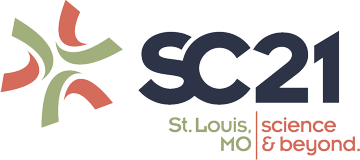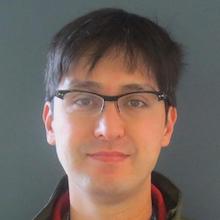abstract
/ agenda / invited speaker / best paper / cfp / submissions / WIP session
committees / author instructions / workshop registration
Invited speaker
Why Memory Is Your Next Bottleneck And How To Overcome It
This talk will explain why memory is becoming a significant problem for computing, and will discuss how technology and research can help [more].
Best Paper Award Winner
New Challenges of Benchmarking All-Flash Storage for HPC
Glenn K. Lockwood (Lawrence Berkeley National Laboratory), Alberto Chiusole (Lawrence Berkeley National Laboratory), Nicholas J. Wright (Lawrence Berkeley National Laboratory) [pdf]
Congratulations!
agenda
| 9:00am – 9:10am |
Welcome & Introduction
Slides |
| Session 1 (Invited Talk) - Chair: Amelie Chi Zhou, Shenzhen University |
| 9:10am – 10:00am |
Invited Speaker - Marcos K. Aguilera, VMware
Why Memory Is Your Next Bottleneck And How To Overcome It
Slides |
| 10:00am - 10:30am |
Morning Coffee Break
Virtual Chat Time: Live discussion open to all Workshop Attendees
Zoom link |
| Session 2 (3 papers) - Chair: Bing Xie, Oakridge National Laboratory |
| 10:30am - 10:55am |
New Challenges of Benchmarking All-Flash Storage for HPC
BEST PAPER
Glenn K. Lockwood (Lawrence Berkeley National Laboratory)
Alberto Chiusole (Lawrence Berkeley National Laboratory)
Nicholas J. Wright (Lawrence Berkeley National Laboratory)
Paper | Slides |
| 10:55am - 11:20am |
Understanding the I/O Impact on the Performance of High-Throughput Molecular Docking
Stefano Markidis (KTH Royal Institute of Technology)
Davide Gadioli (Polytechnic University of Milan)
Emanuele Gadioli (Polytechnic University of Milan)
Gianluca Palermo (Polytechnic University of Milan)
Paper |
| 11:20am - 11:45am |
I/O Bottleneck Detection and Tuning: Connecting the Dots using Interactive Log Analysis
Jean Luca Bez (Lawrence Berkeley National Laboratory)
Houjun Tang (Lawrence Berkeley National Laboratory)
Bing Xie (Oak Ridge National Laboratory)
David Williams-Young (Lawrence Berkeley National Laboratory)
Rob Latham (Argonne National Laboratory)
Rob Ross (Argonne National Laboratory)
Sarp Oral (Oak Ridge National Laboratory)
Suren Byna (Lawrence Berkeley National Laboratory)
Paper | Slides
|
| Session 3 (1 paper, 2 WiPs) - Chair: Haiying Xu, NCAR |
| 11:45am - 12:10pm |
Data-Aware Storage Tiering for Deep Learning
Cong Xu (Hewlett Packard Enterprise)
Suparna Bhattacharya (Hewlett Packard Enterprise)
Martin Foltin (Hewlett Packard Enterprise)
Suren Byna (Lawrence Berkeley National Laboratory)
Paolo Faraboschi (Hewlett Packard Enterprise)
Paper | Slides |
| 12:10pm - 12:20pm |
(WiP) pMEMCPY: A Simple, Lightweight, and Portable I/O Library for Storing Data in Persistent Memory
Luke Logan (Illinois Institute of Technology)
Jay Lofstead (Sandia National Labs)
Scott Levy (Sandia National Labs)
Patrick Widener (Sandia National Labs)
Xian-He Sun (Illinois Institute of Technology)
Anthony Kougkas (Illinois Institute of Technology)
Abstract | Slides |
| 12:20pm - 12:30pm |
(WiP) Optimising I/O using Non-Volatile Memory
Adrian Jackson (University of Edinburgh)
Abstract | Slides |
| 12:30pm - 2:00pm |
Lunch Break
Virtual Chat Time: Live discussion open to all Workshop Attendees
Zoom link |
| Session 4 (Invited Industry Talk) - Chair: Dean Hildebrand, Google |
| 2:00pm - 2:30pm |
Jump's Archive for the Next Decade
Alex Davies (Jump Trading LLC)
Slides |
| Session 5 (3 WiPs) - Chair: Philip Carns (Argonne National Laboratory) |
| 2:30pm - 2:40pm |
(WiP) Network-accelerated Distributed File Systems
Salvatore Di Girolamo (ETH Zürich)
Daniele De Sensi (ETH Zurich)
Konstantin Taranov (ETH Zurich)
Milos Malesevic (ETH Zurich)
Maciej Besta (ETH Zurich)
Timo Schneider (ETH Zurich)
Severin Kistler (ETH Zurich)
Torsten Hoefler (ETH Zurich)
Abstract |
| 2:40pm - 2:50pm |
(WiP) High-throughput Small File Access for Large-scale Machine Learning Applications
Hiroki Ohtsuji (Fujitsu Ltd)
Erika Hayashi (Fujitsu Ltd)
Takuya Okamoto (Fujitsu Ltd)
Eiji Yoshida (Fujitsu Ltd)
Osamu Tatebe (University of Tsukuba)
Abstract | Slides |
| 2:50pm - 3:00pm |
(WiP) Hyperconverged Storage for High Performance Data Analysis in High Energy Physics: A Case of Intel DAOS Deployment
Alexander Moskovsky (RSC Group)
A.T. Brekhov (RSC Group)
D.V. Podgainy (JINR LIT)
A.O. Kudryavtsev (Intel Corp)
Abstract |
| 3:00pm - 3:30pm |
Afternoon Coffee Break
Virtual Chat Time: Live discussion open to all Workshop Attendees
Zoom link
|
| Session 6 (3 papers) - Chair: Kathryn Mohror, Lawrence Livermore National Laboratory |
| 3:30pm - 3:55pm |
SCTuner: An Auto-tuner Addressing Dynamic I/O Needs on Supercomputer I/O Sub-systems
Houjun Tang (Lawrence Berkeley National Laboratory)
Bing Xie (Oak Ridge National Laboratory)
Suren Byna (Lawrence Berkeley National Laboratory)
Philip Carns (Argonne National Laboratory)
Quincey Koziol (Lawrence Berkeley National Laboratory)
Sudarsun Kannan (Rutgers University)
Jay Lofstead (Sandia National Laboratories)
Sarp Oral (Oak Ridge National Laboratory, Open Scalable File Systems Inc)
Paper | Slides |
| 3:55pm - 4:20pm |
User-Centric System Fault Identification Using IO500 Benchmark
Radita Liem (RWTH Aachen University)
Gerald Loftstead (Sandia National Laboratories)
Paper | Slides |
| 4:20pm - 4:45pm |
Verifying IO Synchronization from MPI Traces
Sushma Yellapragada (University of Illinois)
Chen Wang (University of Illinois)
Marc Snir (University of Illinois)
Paper | Slides
|
| 4:45pm - 4:55pm |
Closing Remarks |
| 4: 55pm - 5:30pm |
Virtual Happy Hour: Live discussion open to all Workshop Attendees
Zoom link |
WORKSHOP ABSTRACT
We are pleased to announce the 6th International Parallel Data Systems Workshop (PDSW'21). PDSW'21 will be hosted in conjunction with SC21: The International Conference for High Performance Computing, Networking, Storage and Analysis.
Efficient data storage and data management are crucial to scientific productivity in both traditional simulation- oriented HPC environments and Big Data analysis environments. This issue is further exacerbated by the growing volume of experimental and observational data, the widening gap between the performance of computational hardware and storage hardware, and the emergence of new data-driven algorithms in machine learning.
The goal of this workshop is to facilitate research that addresses the most critical challenges in scientific data storage and data processing. We therefore encourage the community to submit original manuscripts that:
- introduce and evaluate novel algorithms or architectures
- inform the community of important scientific case studies or workloads
- validate the reproducibility of previously published work
Special attention will be given to issues in which community collaboration is crucial for problem identification, workload capture, solution interoperability, standardization, and shared tools. We also strongly encourage papers to share complete experimental environment information (software version numbers, benchmark configurations, etc.) to facilitate collaboration.
Topics of interest include the following:
- Scalable architectures for data storage, archival, and virtualization
- Performance benchmarking, resource management, and workload studies
- Programmability of storage systems
- Parallel file systems, metadata management, and complex data management
- Alternative data storage models, including object stores and key-value stores
- Programming models and frameworks for data intensive computing
- Techniques for data integrity, availability, reliability, and fault tolerance
- Productivity tools for data intensive computing, data mining, and knowledge discovery
- Application of emerging big data frameworks towards scientific computing and analysis
- Enabling cloud and container-based models for scientific data analysis
- Data filtering/compressing/reduction techniques
- Tools and techniques for managing data movement among compute and data intensive components
- Integrating computation into the memory and storage hierarchy to facilitate in-situ and in-transit data processing
CALL FOR PAPERS
Regular paper SUBMISSIONS
All papers will be evaluated by a competitive peer review process under the supervision of the workshop program committee. Selected papers and associated talk slides will be made available on the workshop web site. The papers will also be published by the IEEE TCHPC.
Authors of regular papers are strongly encouraged to submit Artifact Description (AD) Appendices that can help to reproduce and validate their experimental results. While the inclusion of the AD Appendices is optional for PDSW’21, submissions that are accompanied by AD Appendices will be given favorable consideration for the PDSW Best Paper award.
PDSW’21 follows the SC21 Reproducibility Initiative. For Artifact Description (AD) Appendices, we will use the format of the SC21 for PDSW'21 submissions. The AD should include a field for one or more links to data (zenodo, figshare, etc.) and code (github, gitlab, bitbucket, etc.) repositories. For the Artifacts that will be placed in the code repository, we encourage authors to follow the PDSW'21 Artifact Packaging Guidelines on how to structure the artifact, as it will make it easier for the reviewing committee and readers of the paper in the future.
Submit a not previously published paper as a PDF file, indicate authors and affiliations. Papers must be up to 5 pages, not less than 10 point font and not including references and optional reproducibility appendices. Papers must use the IEEE conference paper template available at: https://www.ieee.org/conferences/publishing/templates.html.
Regular Papers & Reproducibility Study Papers due: Submissions Closed
Submissions website: https://submissions.supercomputing.org/
Notification: Sep. 15, 2021
Copyright forms due: Deadline extended - TBD
Pre-recorded presentation due: Oct. 13, 2021 (AoE)
Slides due before workshop: TBA
Camera ready files due: Deadline extended - TBD
* Submissions must be in the IEEE conference format
Work In Progress (WIP) Session
We have a WIP session where presenters provide short talks on their on-going work, with fresh problems/solutions. WIP content is typically material that may not be mature or complete enough for a full paper submission and will not be included in the proceedings. A one-page abstract is required for the submission.
Please email your submission as a PDF attachment of the one-page abstract to Kento Sato and Amelie Chi Zhou. Put "PDSW 2021 WIP" as the first part of the message subject. To verify your submission a reply will be made indicating official submission. If you do not receive such an email within 2 hours of the above deadline, please forward the original submission again.
Deadlines
Work in Progress (WIP) submissions due: Submissions Closed
Notification: On or before Sep. 29, 2021
Pre-recorded presentation due: Oct. 13, 2021 (AoE)
Workshop Registration
Registration opens July 14, 2021. Supercomputing is optimistic they will convene in-person for SC21. However, understand that there may be unforeseeable events related to COVID-19 that may impact attendee travel or on-site participation. To allow you to prepare, find details on registration pricing, and policies affecting registration changes and cancellations here on July 14.
PROGRAM COMMITTEE:
- Olivier Beaumont, Inria
- Jalil Boukhobza, University of Western Brittany, France
- Suren Byna, Lawrence Berkeley National Laboratory
- Yong Chen, Texas Tech University
- Hank Childs, University of Oregon
- Matthieu Dorier, Argonne National Laboratory (ANL)
- Bogdan Ghit, Databricks
- Bingsheng He, National University of Singapore
- Youngjae Kim, Sogang University
- Johann Lombardi, Intel Corporation
- Xiaoyi Lu, University of California, Merced
- Xiaosong Ma, Qatar Computing Research Institute
- Kathryn Mohror, Lawrence Livermore National Laboratory
- Diana Moise, Hewlett Packard Enterprise
- Sarah Neuwirth, Habilitation Candidate at Goethe University
- M. Mustafa Rafique, Rochester Institute of Technology
- Raghunath Raja Chandrasekar, Enfabrica
- Michael Schöttner, Duesseldorf University
- Tong Shue, Southern Illinois University Carbondale
- Domenico Talia, University of Calabria
- Vasily Tarasov, IBM Corporation
- Osamu Tatebe, University of Tsukuba
- Bing Xie, Oakridge National Laboratory
- Haiying Xu, NCAR
STEERING COMMITTEE:
- John Bent, Cray
- Ali R. Butt, Virginia Tech
- Philip Carns, Argonne National Laboratory
- Shane Canon, Lawrence Berkeley National Laboratory
- Raghunath Raja Chandrasekar, Stealth Startup
- Yong Chen, Texas Tech University
- Evan J. Felix, Pacific Northwest National Laboratory
- Gary Grider, Los Alamos National Laboratory
- William D. Gropp, University of Illinois at Urbana-Champaign
- Dean Hildebrand, Google
- Shadi Ibraim, Inria, France
- Dries Kimpe, KCG, USA
- Glenn Lockwood, Lawrence Berkeley National Laboratory
- Jay Lofstead, Sandia National Laboratories
- Xiaosong Ma, Qatar Computing Research Institute, Qatar
- Carlos Maltzahn, University of California, Santa Cruz
- Suzanne McIntosh, New York University
- Kathryn Mohror, Lawrence Livermore National Laboratory
- Robert Ross, Argonne National Laboratory
- Philip C. Roth, Oak Ridge National Laboratory
- John Shalf, NERSC, Lawrence Berkeley National Laboratory
- Xian-He Sun, Illinois Institute of Technology
- Rajeev Thakur, Argonne National Laboratory
- Lee Ward, Sandia National Laboratories
- Brent Welch, Google

 Marcos K. Aguilera
Marcos K. Aguilera
